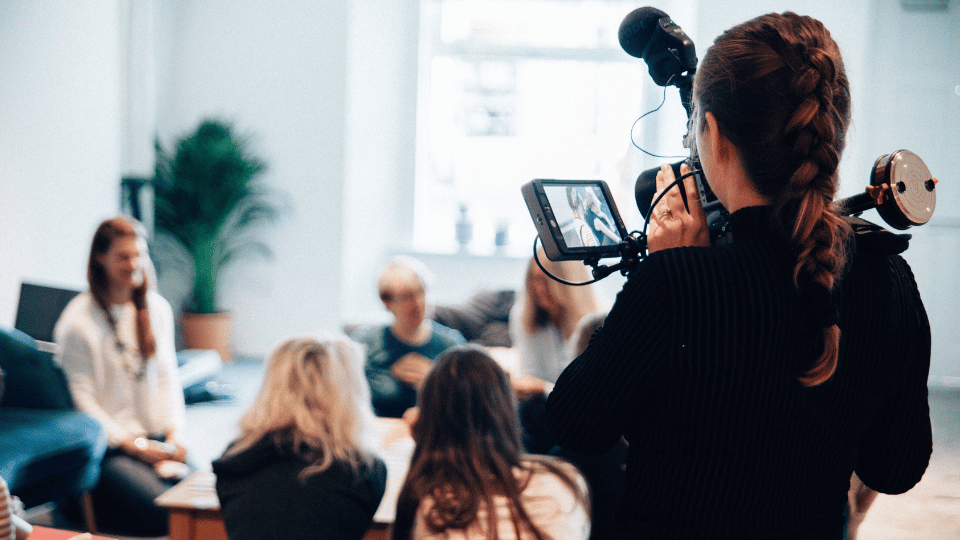Introduction
Conducting effective interviews is a crucial skill for professionals in various industries. Whether you’re a hiring manager, journalist, researcher, or podcast host, the ability to conduct interviews that yield valuable insights is essential. In this comprehensive guide, we will explore the key steps and strategies to help you master the art of conducting effective interviews. From preparing beforehand to asking the right questions and actively listening, we will cover everything you need to know to conduct interviews that make a lasting impact.
Define Your Objectives
Before diving into an interview, it’s important to define your objectives. What do you hope to achieve through this interview? Clearly outlining your goals will help you structure your questions and guide the conversation in the desired direction. Whether you aim to gather information, uncover personal experiences, or elicit emotional responses, understanding your objectives is fundamental to conducting a successful interview.
Research and Prepare
Thorough research and preparation are key to conducting effective interviews. Familiarize yourself with the interviewee’s background, expertise, and accomplishments. This knowledge will not only help you craft relevant and insightful questions but also demonstrate your genuine interest in their work. Additionally, researching the topic or subject matter beforehand will enable you to ask informed follow-up questions and delve deeper into the subject during the interview.
Craft Thoughtful Questions
Crafting thoughtful and well-structured questions is essential to conducting effective interviews. Start with open-ended questions that encourage the interviewee to provide detailed responses. These questions typically begin with “what,” “how,” or “why” and allow for more than a simple yes or no answer. Follow-up questions should be based on the interviewee’s responses, allowing the conversation to flow naturally. Avoid leading or biased questions to maintain objectivity and authenticity.
Active Listening
Active listening is an integral part of conducting effective interviews. Pay close attention to the interviewee’s responses, body language, and tone of voice. Show genuine interest by nodding, maintaining eye contact, and using verbal cues to encourage them to elaborate. Active listening not only helps you understand the interviewee better but also allows you to ask relevant follow-up questions and create a comfortable and engaging atmosphere.
Create a Comfortable Environment
Creating a comfortable and relaxed environment is crucial for conducting effective interviews. Make the interviewee feel at ease by starting with casual conversation or small talk. This helps build rapport and establishes a connection, making the interviewee more likely to open up and share their thoughts and experiences. Choose a quiet and private location, free from distractions, to ensure a focused and uninterrupted interview.
Respectful and Ethical Conduct
Maintaining respectful and ethical conduct is paramount when conducting interviews. Treat your interviewee with dignity and respect, valuing their time and expertise. Obtain consent before recording or filming the interview, and be transparent about how the information will be used. If discussing sensitive or personal topics, approach them with empathy and sensitivity, ensuring the interviewee’s comfort throughout the process.
Practice and Refine
Conducting effective interviews is a skill that improves with practice. Take every opportunity to refine your interviewing techniques and learn from each experience. Review your interviews, analyze what worked well, and identify areas for improvement. Consider seeking feedback from colleagues or mentors to gain valuable insights and perspectives. With time and practice, your interviewing skills will become more polished and effective.
Key Takeaways
- Clearly define your objectives before conducting an interview to guide the conversation in the desired direction.
- Thoroughly research and prepare by familiarizing yourself with the interviewee’s background and the topic at hand.
- Craft thoughtful and open-ended questions to encourage detailed responses and maintain objectivity.
- Practice active listening by paying close attention to the interviewee’s responses and non-verbal cues.
- Create a comfortable environment by starting with casual conversation and choosing a quiet location.
- Maintain respectful and ethical conduct throughout the interview process.
- Continuously practice and refine your interviewing skills to improve over time.
If you’re looking to further enhance your interviewing skills, consider enrolling in the NYU | Modern Journalism online course and certificate program offered by Yellowbrick. This comprehensive program will provide you with invaluable insights and practical techniques to conduct effective interviews and excel in the field of journalism. Start your journey towards becoming a skilled interviewer today!




